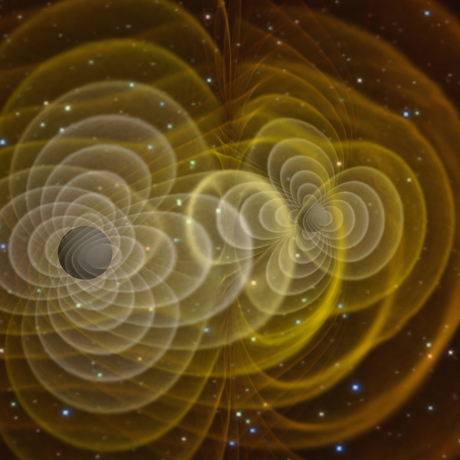What does Einstein have to do with space travel?

One hundred years after Albert Einstein first penned his theory of general relativity, Professor Geraint Lewis says we’re only now starting to scratch the surface of what the theory predicts.
As part of National Science Week and the Sydney Science Festival, Professor Lewis will be discussing how new work on Einstein’s famous theory is opening up fresh possibilities for space travel. He said, “One of the things coming out of the mathematics is a possible mechanism to allow us to travel through the universe nominally faster than the speed of light.
“It’s Star Trek language: people talk about ‘warp drives’ where you bend space and time, and that allows you to travel at any speed in the universe. In the next 100 or 200 years, maybe the theory will give us solutions such as being able to travel efficiently and at high speeds across the universe.”
Einstein’s description of gravity underpins such modern innovations as global positioning systems, which rely on differing clock rates in orbit and on Earth. Extending this same understanding of how space and time can bend also holds exciting possibilities for our space travel ambitions, Professor Lewis will argue.
He will point to the growing industry working to detect the behaviour of gravitational waves — ripples in the curvature of space-time first predicted by Albert Einstein in 1916 — as an example of the potential breakthroughs in the not-too-distant future.
“If you have really violent events in the universe, it can cause space and time to wobble,” he noted. “It’s been a dream for the past 50 years to detect these wobbles — and we are getting closer. There are some new gravitational telescopes being built that are trying to get the sensitivity to detect the waves.
“Once we can detect gravitational waves, then we are going to be able to see the most violent explosions and collisions in the universe. That’s going to be an absolutely amazing advancement: we’ll have a brand new window on the universe.”
Professor Lewis’s talk ‘Einstein’s wonderful idea: A century of space-time, black holes and expanding universes’ will be held at The University of Sydney on 17 August at 6.30 pm. To register for the free event, click here.
Colon cancer DNA in blood can guide chemo decisions
A simple blood test could change how doctors decide which patients with colon cancer need...
Non-invasive blood test helps rule out oesophageal cancer
Designed and developed in Australia, the PromarkerEso test is designed to offer a quick,...
Taste-based flu test enables rapid diagnosis
The diagnostic tool consists of the sensor molecule thymol and a virus-specific sugar building...



